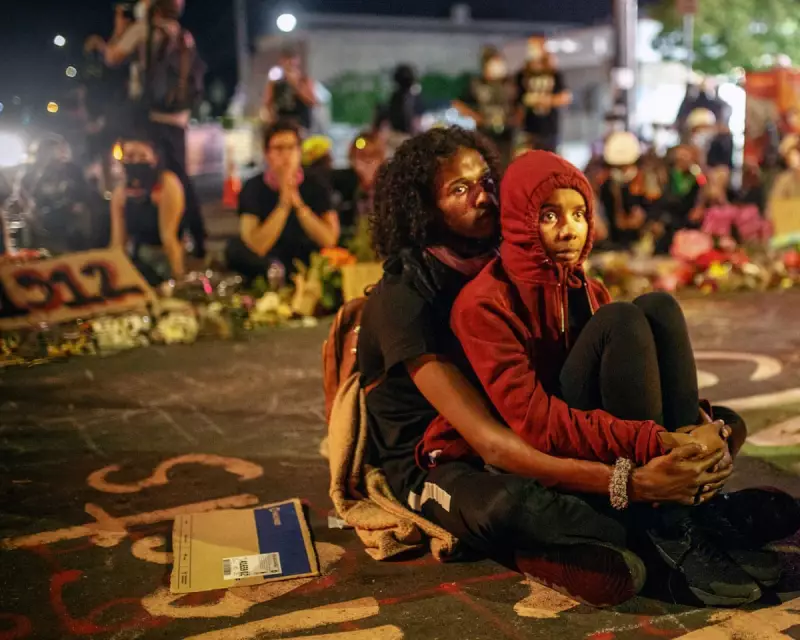
Minnesota Leaders Rally Against Trump's Somali TPS Termination
Minnesota officials and community organisers are preparing to fight back against former President Donald Trump's announcement that he would end temporary protected status for Somalis residing in the state. The controversial move, declared via Truth Social on Friday, has sparked immediate backlash from elected representatives and immigrant advocates who question its legality and condemn its targeting of an entire community.
In his social media post, Trump declared he would be "terminating, effective immediately" the protected status for Somalis in Minnesota, describing the state as a "hub of fraudulent money laundering activity." His message concluded with the directive: "Send them back to where they came from. It's OVER!"
Legal Challenges and Community Response
Legal experts quickly raised concerns about the legality of Trump's proposed action. Typically, the removal of Temporary Protected Status applies nationwide rather than targeting a single state, making Trump's Minnesota-specific approach legally questionable.
Keith Ellison, Minnesota's Attorney General, confirmed his office was "exploring all of our options" to respond if Trump follows through with removing TPS. In a statement on X, Ellison noted: "Trump's announcement of termination of Somali TPS holders in Minnesota is legally problematic – while a president does have a lot of authority to designate and revoke TPS, he cannot legally wield that power to discriminate against an ethnic group or to target a state, like MN. This ain't over."
Julia Decker, policy director at the Immigrant Law Center of Minnesota, highlighted the disconnect between Trump's justification and the legal requirements for TPS changes. "Obviously, fraud investigations in the United States do not have anything to do with whether conditions in Somalia have stabilized or not," she stated.
Community Impact and Solidarity
The Somali community in Minnesota, which represents the nation's largest Somali population, responded with both concern and defiance. Most Somali residents in the state are US citizens, with TPS currently protecting approximately 700 people from Somalia across the entire United States from deportation.
Congresswoman Ilhan Omar, who has frequently been targeted by Trump and his allies, addressed supporters of Trump's announcement directly: "I am a citizen and so are majority of Somalis in America. Good luck celebrating a policy change that really doesn't have much impact on the Somalis you love to hate. We are here to stay."
Khalid Omar, an organiser with interfaith group ISAIAH, condemned what he characterised as collective punishment. "If anyone, regardless of their race, religion, or ethnicity, committed fraud, they should be held accountable under the law as individuals," he said. "Collective punishment is wrong and racist, and using the actions of a few people to attack an entire community is un-American."
The community organised a potluck gathering over the weekend in response to Trump's targeting, where members of the Somali community joined with neighbours and supporters to demonstrate solidarity. Organisers described the event as a powerful show of unity against what many perceive as discriminatory rhetoric.
Political Context and What Comes Next
The move follows several high-profile instances of fraud in state programs involving Somali residents, which have received extensive coverage in right-wing media. A recent media piece alleged these fraudulent activities meant Minnesota taxpayers were funding terrorist groups in Somalia – a claim that Minnesota's Republican members of Congress subsequently elevated in a letter seeking investigation.
Minnesota Governor Tim Walz suggested Trump's targeting of Somalis served as a distraction from more pressing issues. "It's not surprising that the President has chosen to broadly target an entire community," Walz wrote on X. "This is what he does to change the subject."
Somalia has been covered by TPS since 1991, with the protected status receiving extensions dozens of times over the decades. The current designation is set to expire in March, with Homeland Security Secretary Kristi Noem reportedly evaluating whether to extend it further.
For those potentially affected by Trump's proposed termination, the consequences could be severe. "Not to say that for those people who will be impacted, it is not incredibly concerning, of course, because it means that they will lose the ability to work to support themselves, and they will face having to leave the country, potentially being arrested and detained and deported if they don't leave," Decker explained.
Community leaders emphasised that Somalis in Minnesota have become integral to the state's social and economic fabric. "The only thing that we know that can stop this administration from attacking people is for everyday people to stand up and to push back on this narrative," said one organiser, capturing the determined spirit of those preparing to challenge Trump's announcement through legal and community channels.





